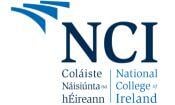
This is a guest blog post written by Dr Yvonne Emmett, Assistant Professor in Education, Centre of Education and Lifelong Learning at National College of Ireland.
If you work in education and training or plan to, you know the importance of lifelong learning for personal and professional development.
The Master of Arts in Educational Practice at National College of Ireland is an advanced qualification for those working or aspiring to work in a variety of adult learning contexts, including adult and community education, higher education, corporate learning and development functions and educational research. It can help increase your effectiveness as an educator or trainer and open the door to a wider range of employment opportunities.
Upcoming Webinar, 15th May 2024
Hear from the experts at our MA in Educational Practice Information Webinar on Wednesday 15th May. Faculty members and recent graduates will discuss the programme and answer any questions you have. Visit the event page to register for this webinar.
There are many reasons to study for a Master of Arts in Educational Practice, but here our top five:
1. Enhance Your Professional Skills
Do you want to enhance your professional practice as an educator?
Whether you’re new to the field or an experienced educator, our MA in Educational Practice will ensure that you are equipped with the most up-to-date theories, strategies and tools to meet emerging challenges and deliver quality educational outcomes. Modules are highly practical, informed by contemporary educational research and will provide a solid grounding in Strategies of Learning and Teaching, Educational Practice for Diversity and Inclusion, Technology-Enhanced Learning, Educational Assessment and Feedback, Theories of Learning and Teaching, Coaching and Mentoring for Personal and Professional and Development and more.
“Completing the MA in Educational Practice empowered me as an educator with new skills, knowledge and confidence. It also allowed me to step back into the shoes of a student and gain a renewed positive perspective on the experience of learning. My dissertation allowed me to explore issues that really matter to me and that I feel have a genuine influence on professional practice.”
Rachel Doherty, STEM Educator/Resource Person, Leixlip Youthreach, KWETB
2. Deepen Your Understanding
Do you want to increase your understanding of contemporary issues and policies in education nationally and internationally?
The landscape of education is constantly changing and it’s important for educators to understand the wider context. On the MA in Educational Practice you’ll explore a range of contemporary and enduring issues in education, deepen your understanding of the national and international policy contexts that shape educational practice and consider the implications for your evolving work with students and others in the educational community.
3. Develop A Specialism
Would you like to develop expertise in a specialist area of education or training practice?
The MA in Educational Practice affords you the opportunity to develop expert knowledge by supporting you to undertake a piece of educational research in an area of special interest to you. In past years, programme participants have developed specialist knowledge in diverse areas of education and training practice, including provision for gifted students in post-primary education, trauma-centred practice with young people, support for mature students with disabilities in higher education, leadership in early childhood education and care settings, and informal learning in the workplace.
4. Open Up New Opportunities
Are you ready to take the next step in your career?
Enhancing your qualifications with the MA in Educational Practice can boost your credibility and open the door to new learning and employment opportunities. Past students of the programme have used it to move into the field of education, to transition from one educational sector to another and to advance into new roles. A Masters degree is also essential for anyone thinking about progressing to doctoral level education and the MA in Educational Practice will equip you with the foundational knowledge and skills in educational research that you will need to take this next step.
“I loved exploring the big questions in education – working out what the purpose of education really is. Completing the course has opened up fascinating work opportunities which I wouldn’t have had otherwise. I can say with certainty that I wouldn’t be where I am now without the MA in Educational Practice.”
Conor Thompson, Project Officer at AONTAS, the National Adult Learning Organisation
5. Network With A Community Of Educators
Would you like to be part of a vibrant community of practice?
On the MA in Educational Practice, you’ll be taught by experienced educators from the Centre for Education and Lifelong Learning with research and practitioner expertise in Early Childhood Education and Care, Further Education, Higher Education, Lifelong Learning, Technology Enhanced Learning and Learning Design for 21st Century Skills. You’ll also learn alongside a cohort of peers from diverse education and training contexts who contribute a breadth of experience and contribute to a dynamic community of practice.
More Compelling Reasons To Consider
Most of our classes are online live streamed with in-person attendance required for just two Saturday seminars each semester, making it easier to gain your qualification while working full-time. Our campus is conveniently located in the centre of Dublin and close to bus, rail and Luas. We offer excellent support services to ensure that every student gets what they need to succeed. We also offer flexible repayment options for programme fees.
Want to know more?
Visit the MA in Educational Practice course page for full details on the content, entry requirements, indicative schedule and to apply online. If you have any questions about the programme, you can get in touch with our Admissions Team by emailing admissions@ncirl.ie. You can also join an online or in-person information event to meet our team.










